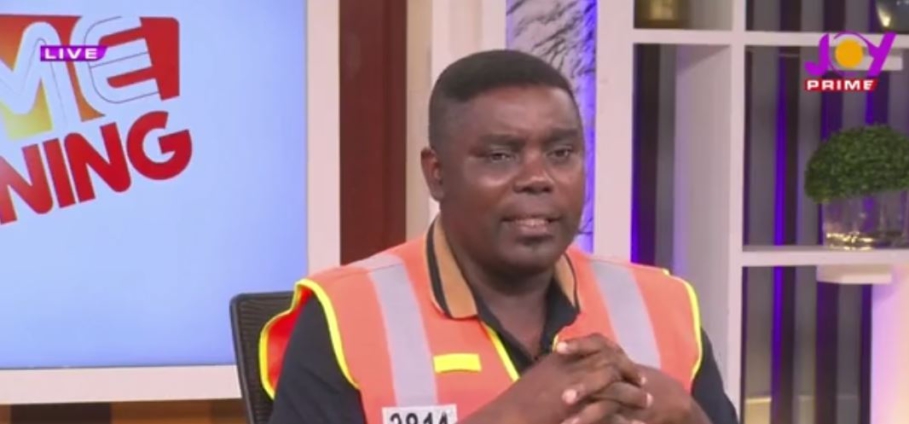The National Disaster Management Organisation (NADMO) has said adequate measures are being implemented to forestall any flooding catastrophe during the rainy season.
While embarking on public education and sensitisation programmes, the outfit says it will soon be inspecting flood-prone areas in the capital and other cities to reduce the impact of floods when the rains strike.
In an interview with JoyNews, the Communications Director for the Organisation, George Ayisi, added that some major drains have already been dredged as attempts are being made to identify safer places for stranded people.
“In partnership with the assemblies, some areas are dredged and anytime soon, maybe next week, the Director-General and the team will pay visit to some of the flood-prone areas to carry out inspections and see how prepared we are as far as the drains are concerned.
“There are some identified areas that we want to go. We identify safe havens where they can easily access and seek refuge till the rains are over because we know when the floods get there, it’s so dangerous and so that’s what we do,” he said.
On Sunday, April 3, some residents of Keta and Agavedzi in the Volta Region were displaced by tidal waves, leaving many homeless.
Some moved to higher grounds to seek shelter, while others had no choice but to sleep on mattresses along major roads.
In a related development, more than 3,000 persons were forced out of their homes after tidal waves swept through homes in the Ada East and West districts of the Greater Accra Region on Sunday.
Per reports received by NADMO, the disaster also destroyed more about 251 households in four communities, including Lolonya, Agblabanya and Anyamam.
These incidents have awakened the disaster management stakeholders to what is to come this rainy season.
The Meteorological Agency has warned there could be similar patterns to be expected.
But NADMO says the impacts can be mitigated if adequate measures are put in place by city authorities while the citizenry also takes the necessary precautions.
“…to take them out is sometimes difficult; relocation, evacuation and you need to get another place and that is central government’s responsibility.
“For now, we need to identify safe havens where they can seek refuge and then when the rains are down, they can go back,” George Ayisi added.
Latest Stories
-
Video: Hitz FM’s Rep Ur Jersey ends in style as fans jam to afterparty beats
1 hour -
Hitz FM’s Rep Ur Jersey turns electric as PSG thrashes Inter 5–0 in Champions League showdown
2 hours -
PSG thrash Inter Milan to win first-ever Champions League title
2 hours -
Aviation Social Centre packed as UCL Finale kicks off at Hitz FM’s Rep Ur Jersey
3 hours -
Photos: Fans win big at ‘Rep Ur Jersey’ as sponsors reward game participants with exciting prizes
3 hours -
Australia to increase contribution to UN Peacebuilding Fund to $15m annually – High Commissioner
3 hours -
Dr. Angela Dwamena-Aboagye named MTN Hero of Change for championing women and children’s rights
4 hours -
From Morocco to Botswana – Africans turn to trusted media and experts for climate change information
4 hours -
Mahama announces Labour Export Programme
4 hours -
Prof. Peter Atudiwe Atupare appointed Dean of University of Ghana School of Law
5 hours -
Goldbod is already doing wonders – Mahama praises CEO Sammy Gyamfi
5 hours -
Mahama promises attractive cocoa price in August, pledges 200,000 hectare boost to sector
5 hours -
UHAS Council Chairman Prof. Kodzo Gavua urges graduates to serve with passion, integrity, and innovation
6 hours -
Dr. Charisa Ogbogbo becomes first female professor in Mathematical Sciences at UG
7 hours -
Communication Ministry assures data price cuts as TELCOS prepare to reduce costs soon
7 hours

